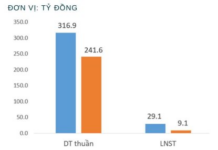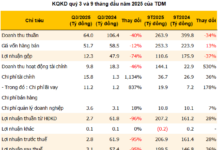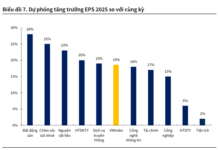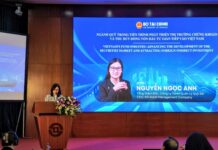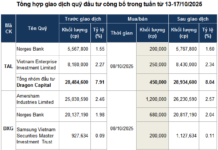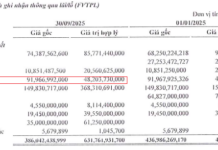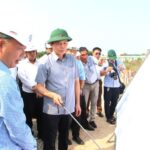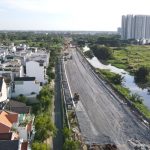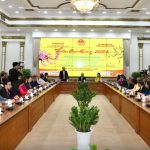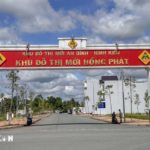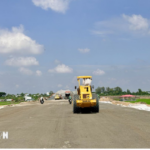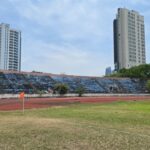On July 5th, the Dan – Chinh – Dang TP HCM Block organized a forum titled “Connecting Young Civil Servants: Planning and Developing Ho Chi Minh City – A Future Vision.” The event aimed to create a platform for young officials, offering an opportunity to exchange work experiences and discuss practical issues, while also gathering ideas and suggestions for the city’s development in line with the resolutions of the 11th Congress of the Ho Chi Minh City Party Committee for the 2020-2025 term.
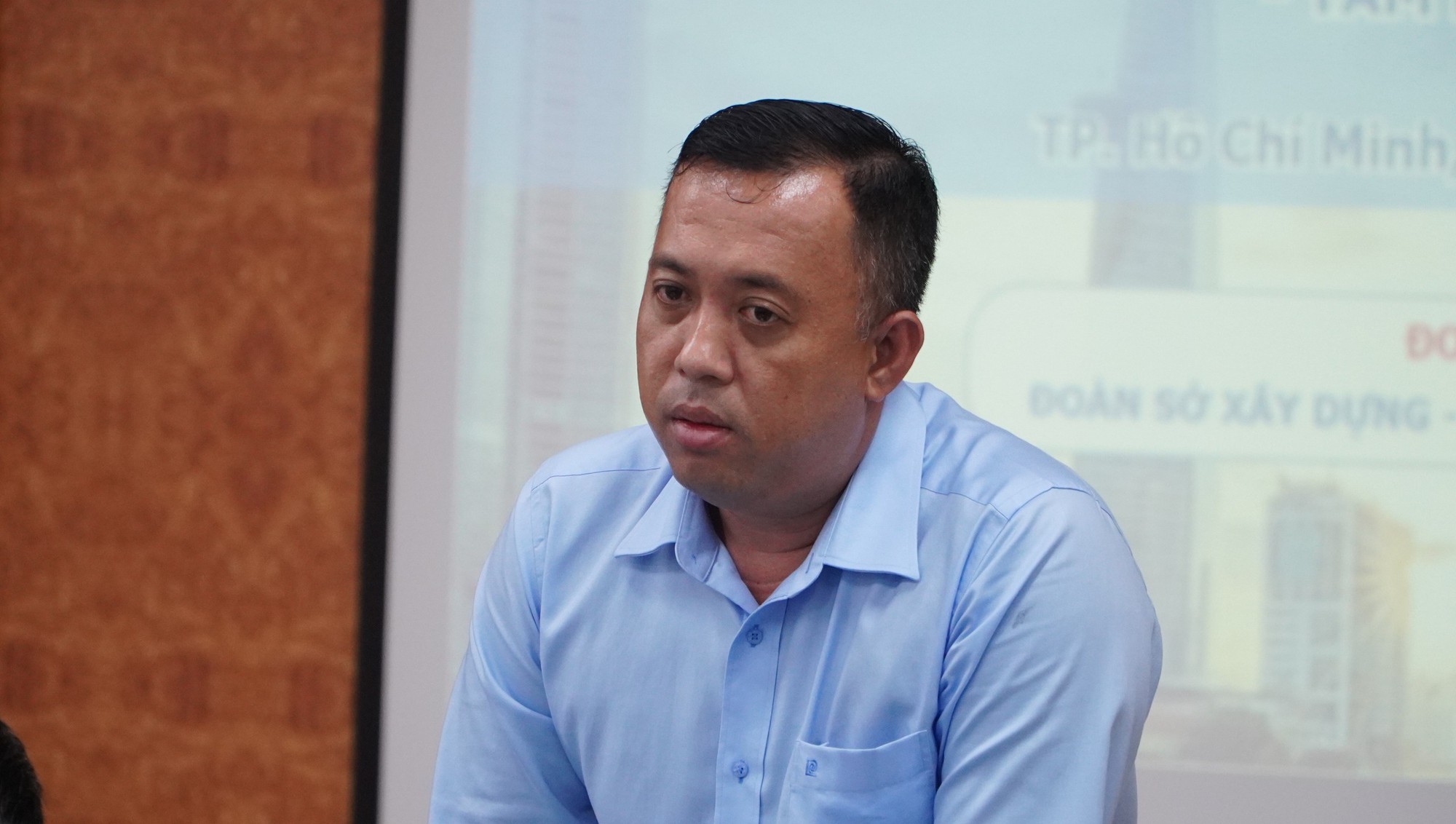
Mr. Huynh Le Cong Truong, Deputy Chief Inspector of the Ho Chi Minh City Department of Construction, presents a report on urban planning and construction management in the city.
Mr. Huynh Le Cong Truong, Deputy Chief Inspector of the Ho Chi Minh City Department of Construction, shared insights into the management of urban planning and construction in the city. He highlighted the significant reduction in violations over the past five years, with a 78% decrease in daily cases compared to the period before the issuance of Directive 23 by the City Party Committee’s Standing Board and the plan of the Ho Chi Minh City People’s Committee.
In 2023, the Department of Construction, in collaboration with commune-level People’s Committees, district-level People’s Committees, and management boards of new urban areas and export processing and industrial zones, conducted 55,435 inspections. They identified 423 cases of construction order violations, a decrease of 36 cases compared to 2022. Of these, 83 cases involved construction permit violations, a reduction of 41 cases from the previous year, and 85 cases were unlicensed constructions, a drop of 33 cases. Additionally, 155 other violations were discovered, an increase of 34 cases, mainly involving issues like lack of covering and debris falling from construction sites.
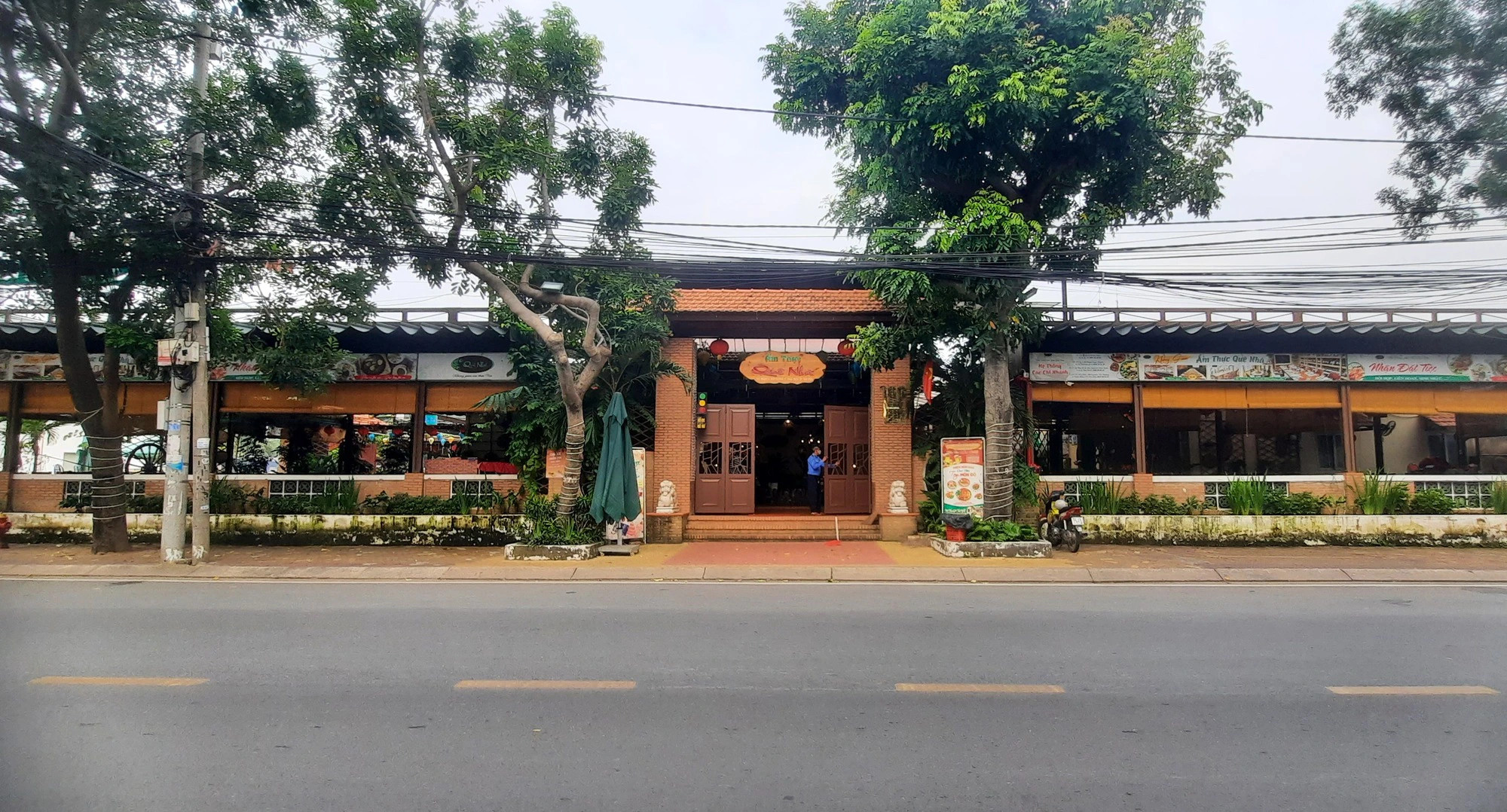
An unlicensed restaurant construction on Nguyen Van Huong Street, Thao Dien Ward, Thu Duc City.
Mr. Truong also provided an update on the first half of 2024, during which 21,161 inspections were carried out, resulting in the detection of 97 construction order violations. These included 31 cases of permit violations, a decrease of 29 cases compared to the same period in 2023, and 29 unlicensed constructions out of the 97 cases, a reduction of one case. The remaining 37 cases involved other violations, a drop of 21 cases.
A total of 106 administrative violation handling decisions were issued for these 97 cases. Six of these decisions were under the authority of the Chairman of the Ho Chi Minh City People’s Committee, with a total fine of over VND 2.8 billion. The Chief Inspector of the Department of Construction issued 33 decisions with a total fine of over VND 1.4 billion, and the remaining 67 decisions were under the jurisdiction of the district-level People’s Committees.
To ensure effective urban construction management in Ho Chi Minh City, Mr. Truong emphasized the need for a concerted effort from the entire political system. He underscored the importance of enhancing the supervision role of the Fatherland Front, socio-political organizations, and the public, as well as improving the sense of responsibility and ethics of relevant officials and civil servants. Additionally, he suggested regular training and professional development for staff and proposed the development of transparent and streamlined procedures to improve the quality of public administrative services.
Mr. Truong also recommended increasing the supply of legal housing to meet the needs of the population and encouraged the application of science and technology, including artificial intelligence, to enhance the comprehensiveness, timeliness, and transparency of state management in this field.
High-speed Fever from Bien Hoa to Vung Tau through Dong Nai Province
After 7 months of construction, the Biên Hòa-Dồng Nai expressway project is still facing challenges with land clearance.
The Power of Lizen: Consistently Winning Massive Bids
Lizen has achieved a significant milestone by successfully deploying and implementing major high-speed construction projects in 2023. The company’s revenue has reached 2,030.5 billion VND, which is twice the amount compared to 2022. However, the post-tax profit has reached its lowest point in the past 6 years, dropping down to only 118.3 billion VND.
Comprehensive regional connectivity
In addition to building strong physical infrastructure, Ho Chi Minh City needs to strengthen its soft connections with other provinces in the region in order to promote economic development. This includes prioritizing the training of skilled workforce and ensuring access to quality healthcare.














